Blog
Archives
- December 2021
- November 2021
- October 2021
- September 2021
- August 2021
- July 2021
- June 2021
- May 2021
- April 2021
- March 2021
- February 2021
- January 2021
- December 2020
- November 2020
- October 2020
- September 2020
- August 2020
- July 2020
- June 2020
- May 2020
- April 2020
- March 2020
- February 2020
- January 2020
- July 2019
- June 2019
- May 2019
- April 2019
- March 2019
- February 2019
- January 2019
- December 2018
- November 2018
- October 2018
- September 2018
- August 2018
- July 2018
- June 2018
- May 2018
- April 2018
- February 2018
- January 2018
- December 2017
- October 2017
- August 2017
- July 2017
- June 2017
- May 2017
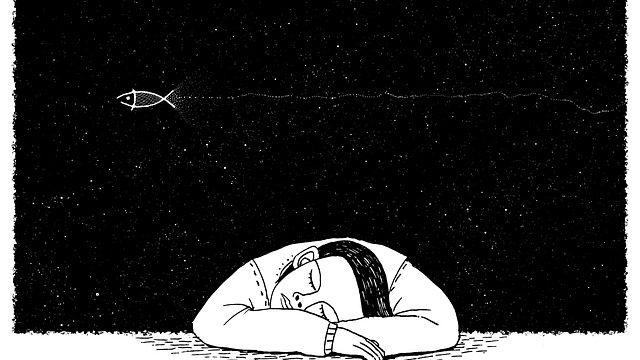
29December
2021
Think about what you do before bedtime. There are actually some activities that can make it difficult for you to fall asleep, stay asleep or even get restful sleep. That is why it is important to take a look at your daily routines, right down to what you eat, drink, medications you take and how you spend your evenings. Sometimes the smallest adjustments can make the biggest impact on your sleep. Keep a sleep diary First, try keeping a two-week sleep diary to better understand how your daily routines might be affecting your sleep. We often refer to this as sleep hygiene, which refers to a series of habits and rituals that can improve your ability to fall asleep and stay asleep. Follow healthy sleep habits We recommend the following some common-sense, healthy sleep habits to promote better sleep: Keep a consistent sleep schedule, which means waking up and going to bed at the same time each day. Set a bedtime that is early enough to get at least 7 hours of sleep a night.Don’t go to bed if you are not tired—this can negatively affect sleep.Get out of bed if you don’t fall asleep within 20 minutes and establish relaxing […]

20December
2021
If you have been diagnosed with craniofacial pain, the next step is getting treatment. With advanced treatment plans and solutions, you will be able to treat your craniofacial pain smoothly and efficiently. There are many treatment plans to choose from, so let’s look at the three most common techniques. Medication With any disorder or pain, prescription medication can be a popular option. With craniofacial pain, taking the correct medicine is crucial. When prescribing a drug, all symptoms and pains are taken into account so you are given a drug that is right for your situation. It is important to understand the prescribed medicine so that it fits your lifestyle as well as treats your pain correctly. While taking the medication, take note of any results you are noticing or lack thereof. If you are having troubles, notify your doctor right away so he or she can prescribe a medication that suits your needs, or talk about a different plan of treatment. Physical therapy Another option for treating craniofacial pain would be physical therapy. If you decide that physical therapy is the best option for you, you will be paired with a highly trained physical therapist who will help you reach […]

10December
2021
Our children suffer more than we might when it comes to sleep apnea. But why is that? It’s because children have smaller lungs, which means they have less oxygen in reserve. As a result, children take frequent, shallow breaths rather than slow, deep breaths. This then causes a child to have too much carbon dioxide in the blood. Additionally, adults might have fragmented sleep where they briefly wake up after breathing stops. But it is different with children. When this occurs in children, they do not wake up in response to the pauses in breathing, but have a higher “arousal threshold” than adults, which makes their sleep patterns normal with sleep apnea. Let’s look at some of the signs, symptoms and causes of sleep apnea among children. What are the signs and symptoms? Throughout the night, a child with sleep apnea might experience some of the following symptoms: Loud snoring on a regular basisPauses, gasps, snorts and stoppage of breathingWaking or disruptions due to snorts or gasps Be restless or sleep in abnormal positions with their head in an unusual positionSweat heavily during sleep Additionally, if a child suffers from sleep apnea they might also experience quite a bit of symptoms […]

3December
2021
Have you ever experienced pain in your face or head? Craniofacial pain can occur for a variety of reasons. However, there are some causes and symptoms you can keep an eye out for. Let’s take a closer look at the symptoms and causes of craniofacial pain for a better understanding of what you may be experiencing. The symptoms of craniofacial pain Once you are aware of the causes of craniofacial pain, the symptoms can be easy to notice. If you are constantly noticing yourself clicking your teeth, experiencing jaw pain, or clenching your teeth together causing harsh headaches and migraines, you may be experiencing craniofacial pain. Sometimes, you may even be doing these things in your sleep which makes it harder to notice. You may wake up with a sore jaw or discomfort in your cheekbones. It could be possible that you have been doing these things your whole life and the effects are just now catching up with you. If you notice that this is a recurring pain in the craniofacial region, going to your doctor would be the ideal next step. Treatment options vary from person to person, but you will be able to find a path that […]
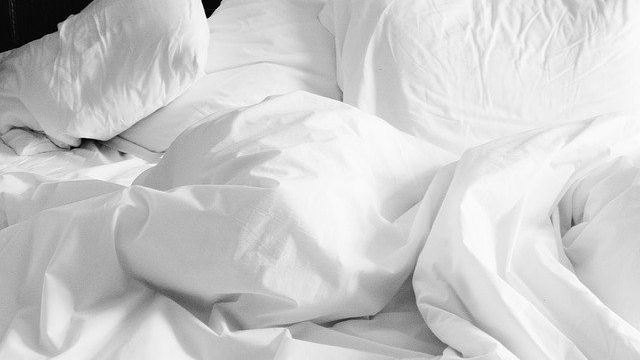
24November
2021
A recent study found that oversleeping can be harmful for us. It can be even more harmful for older people. This is often called sleep affluence, and it is important to pay attention to. While too little sleep can also impact your health, it is important that you don’t sleep too much either. Let’s take a closer look at the impact of too much sleep on your health. It’s time to stop sleeping so much The truth is, it is possible to have too much of a good thing, and that can include sleep. In fact, anything over 7.5 hours a night might be considered sleeping too much. In a recent study that monitored 100 older adults in their mid to late 70s, researchers found that less than 5.5 hours of sleep and more than 7.5 hours of sleep can lead to reduced cognitive performance. The sweet spot of sleep But what would be the sweet spot for sleep then? It is actually somewhere in the middle. That means between 5.5 and 7.5 hours of sleep. If you are able to sleep between that period of time, you might just feel like a new person in the morning. Now it […]
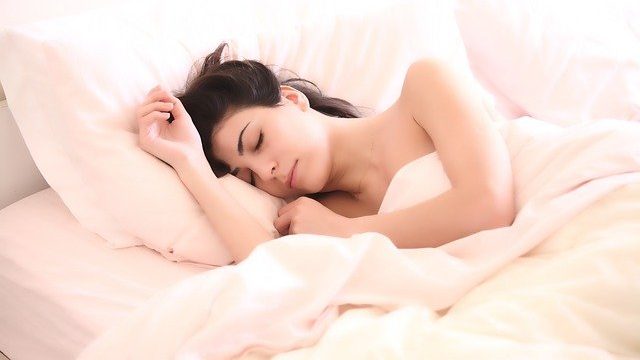
17November
2021
When you are nonstop working, it can lead to a slump in creativity. To make matters worse, if you lose out on sleep, that can interrupt your days as well. That leaves us with the question, does sleep improve our creativity? It does! Let’s take a closer look at this connection between your sleep and your creativity. Lack of sleep makes an impact For optimal creativity, you need a healthy body and mind. But, if you lose out on 17-19 hours of sleep, it can make you act as though your brain is under the influence of 0.5% alcohol. As a result, you will be 50% slower in overall performance. This is not a good way to be creative. It is also why staying up late to cram in more work might seem like a great idea, but it will backfire on you fairly quickly. Importance of sleep for creativity Lack of sleep has been linked to poor cognitive function. This includes poor focus and concentration as well as low creativity, erratic behavior, inability to multitask and increased mistakes. All of which are needed for a creative mind. Missing out on sleep has also been shown to contribute to high […]
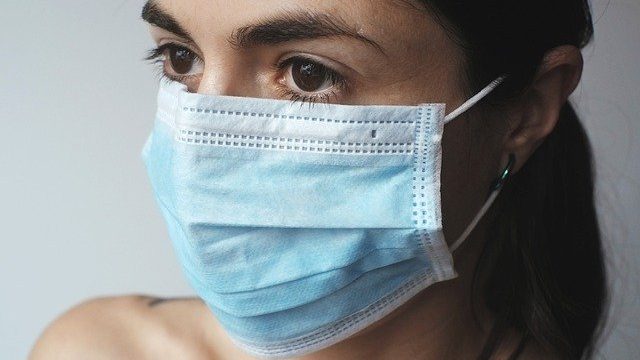
10November
2021
The COVID-19 pandemic has shown us that wearing a mask is important for stopping the spread of SARS-CoV-2. While wearing a mask helps to protect others, we have also learned that it might cause oral health complications. The daily long-term use of masks may cause some concerns for your dentist. But before we dive into this subject a little further, we need to be clear that what we are about to discuss does not outweigh the importance of continuing to wear a mask when in public. Here is what can happen when you wear a mask for a long time and don’t take proper care of your oral health. Mouth breathing Many of us are not used to ever wearing a mask and now we have to wear them daily, sometimes for hours at a time. By doing this, our bodies must adjust to the new norm. One way to adjust has been by breathing out of our mouths instead of our noses. This type of breathing might feel more comfortable, but it can cause complications. Mouth breathing can quickly dry out saliva, which can cause our mouths to dry out and feel uncomfortable. But that isn’t the only thing […]

3November
2021
Do you experience unexplained soreness in your neck and shoulders? Do you often experience throbbing headaches? Have chewing or speaking become painful? If so, you may be suffering from the painful effects of temporomandibular joint (TMJ) disorder (TMD), which affects millions of Americans–especially women between the ages of 20 and 40. The problem with TMD is that it is often overlooked during medical exams and can even be misdiagnosed. But a dentist can help you identify and treat the cause of your jaw pain. And with November being TMJ Awareness Month, we want to make sure you understand what to look for. How severe is TMD? It is important to emphasize that TMD or TMJ pain should not be taken lightly. When you experience pain in your TMJ, it can produce painful symptoms. Those include: A locking jaw that makes it difficult to open and close the mouth.Tenderness and pain in the jaw. Pain in or around your ears.Migraines and tension headaches.Neck and shoulder pain or stiffness. To add to that, there are also multiple causes of TMD to keep in mind. They are: Stress or injury.A misaligned bite.Teeth grinding.Arthritis or degenerative bone defects. Poor posture. It’s time to relieve your TMJ […]

27October
2021
Have you found that your jaw hurts or aches consistently? Do you ever experience popping or locking of your jaw? If so, you might be suffering from temporomandibular joint (TMJ) disorder (TMD). Your TMJ controls the movements of your lower jaw and can cause various problems when it is not working correctly. And while both men and women are vulnerable to TMD, nine out of 10 people who seek treatment are female. Let’s take a closer look at why that is the case. Women and TMD Of those who seek treatment for TMD, most are between the ages of 18 and 44. While we’re not quite sure why this is the case, we do suspect it has something to do with hormones. Another reason might be the differences in jaw anatomy. While TMD might seem like it is nothing more than an annoying ache for women, it can actually lead to further complications such as increased risk of headaches, migraines, back aches and other pains throughout the body. And COVID-19 can add to the worsening of your symptoms, so it is extra important to get vaccinated and follow proper precautions to protect yourself. Seek treatment for TMD now If you […]
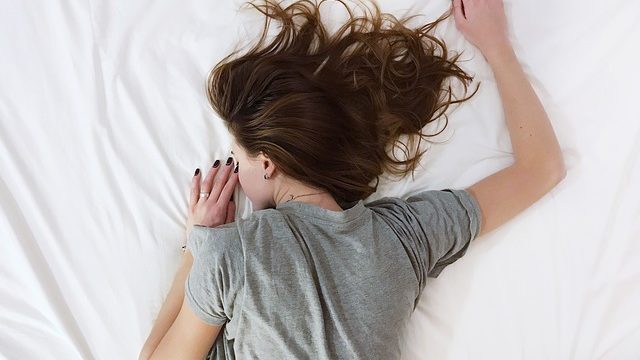
20October
2021
Sleep apnea has a devastating effect on your body. It can also have a severe impact on your mental state. If you have been diagnosed with sleep apnea, you may also experience anxiety. If you do experience anxiety, you may also be more prone to panic attacks. To add to that, your anxiety can even make your sleep apnea worse. That is why it is important to get a proper diagnosis and treatment plan. What is sleep apnea? Sleep apnea is a disorder that affects about 22 million Americans. When you suffer from sleep apnea, you will experience repeated pauses in breathing during sleep. This often occurs when your brain cannot send the necessary signals for breathing while you are asleep. But it often happens because there is something partially or fully blocking your airway. If this goes untreated, it can increase your risk of heart attacks and even car accidents. What are anxiety disorders? If you have been diagnosed with an anxiety disorder, it means you might be excessively worried, fearful or stressed on a regular basis during everyday situations. It is normal to feel anxious on occasion. However, if your anxiety begins to impede on your ability to […]
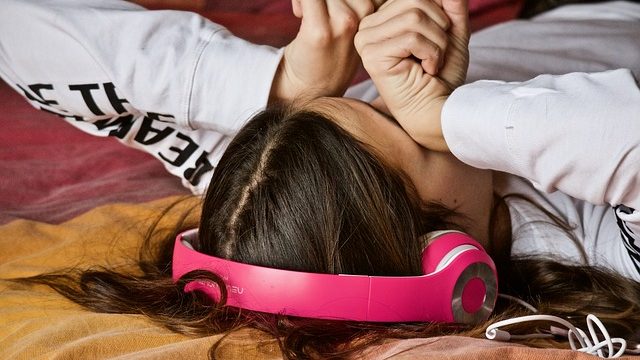
13October
2021
We continue to navigate the ongoing pandemic, which can be uncertain at times. This uncertainty and added stress can make it harder to settle down for a good night’s rest each night. And when you miss out on that sleep, it can end up weakening your immune system. That means you could be at a higher risk for severe COVID-19. If the added stress of the pandemic and sleep apnea are interrupting your sleep, there are some things you can do to help. Perform breathing exercises When you are suffering from added stress, it can lead to insomnia. And when that happens, it can lead to worsening of anxiety. On top of that, you might experience irritability, feelings of being overwhelmed and a lack of energy. We all cope with stress in different ways, but one way to help is to practice breathing exercises. To do this, inhale for 4 seconds. Then hold your breath for 7 seconds. And lastly, exhale for 8 seconds. This breathing exercise actually mimics the same breathing pattern as the onset of sleep. Performing this activity can, in turn, help nudge your body toward sleep. Follow a healthy sleep schedule When you maintain a healthy […]
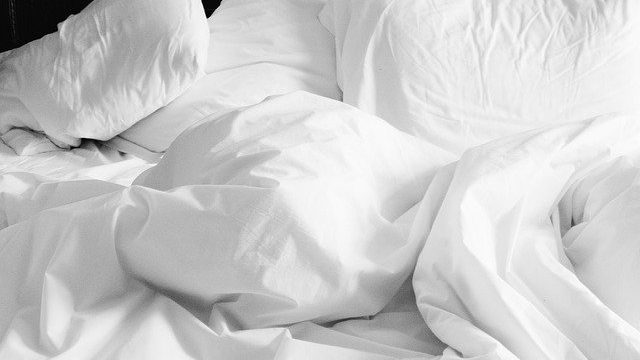
6October
2021
If you suffer from sleep apnea, you may experience daytime lethargy. This is because of the frequent bouts of apnea experienced that decreases the overall time spent in deep sleep. As a result of this lack of sleep, you may find that you want to take more daytime naps. While taking a nap might seem harmless, it can actually be causing more harm than good. Why naps aren’t always good A quick power nap often seems like a good idea to get you through the day, but think again. Taking a daytime nap can actually interfere with your body’s natural clock, especially if you have sleep apnea. Why is that the case? Well, it is because sleep is cumulative and it cannot be made up with a nap here and a nap there. That means that if you attempt to sleep at times that are contrary to your body’s natural sleep cycle, it actually sends mixed messages. In turn, this can further exacerbate your exhaustion and contribute to additional sleep interruptions at nighttime. When it comes to sleeping at night, though, the optimal window of time to sleep is between the hours of 11 pm and 8 am, so make […]
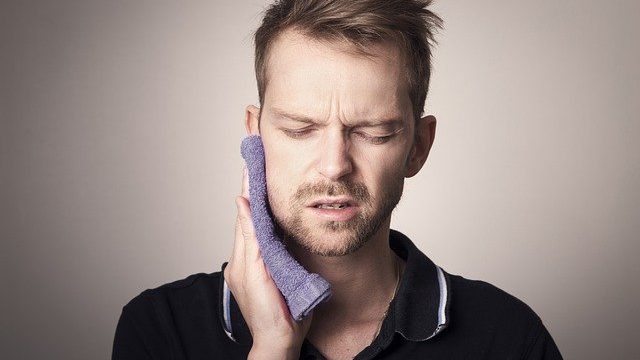
30September
2021
If you tested positive for COVID-19, you might have some lingering effects from the disease. These long haul COVID-19 symptoms following illness often include issues with the heart, lungs and even your jaw. Here is what we know about this. Jaw pain and COVID-19 There was a recent news report that noted how a doctor who recovered from COVID-19, found that he had developed temporomandibular joint disorder (TMD) as a side effect of the disease. This might be because of the strain of heavy mouth breathing, which places excess pressure on the jaw and causes your TMJ to become misaligned. But there is good news. If you have recovered from COVID-19 but are experiencing jaw pain, there is a treatment available to help minimize your pain. Treatment includes physical therapy, hot and cold packs and oral appliance therapy. Through oral appliance therapy, your dentist can help relieve some of that pressure and you are feeling in your jaw. While there are alternative solutions to your TMD, it is up to you and your doctor to determine if oral appliances are the best fit for your case. The most important thing to remember is that TMD pain is temporary. If you […]

22September
2021
There is an elephant in the room and it is medical insurance. We all have to deal with it when we go to the doctor, but one question remains. Can medical insurance be used to cover sleep apnea treatment? The short answer is, yes. Let’s learn more about how this works. Medical insurance and sleep apnea treatment If you are diagnosed with sleep apnea, or suspect you might soon be, it is good to know what is covered and what is not. This all depends on your insurance provider’s specific policy, geographic location and your exact sleep apnea treatment. Ultimately, the best way to find out what is covered and what is not is to call your insurance provider directly. They will be able to provide more details than we can. In the meantime, though, here is what we know. The type of sleep apnea therapy you are prescribed plays a key role. There are different treatment options available including simple weight loss and advanced surgery. However, the most common are continuous positive airway pressure therapy and oral appliance therapy. CPAP therapy is generally covered by most insurance policies and is considered to be durable medical equipment. But supplies are […]
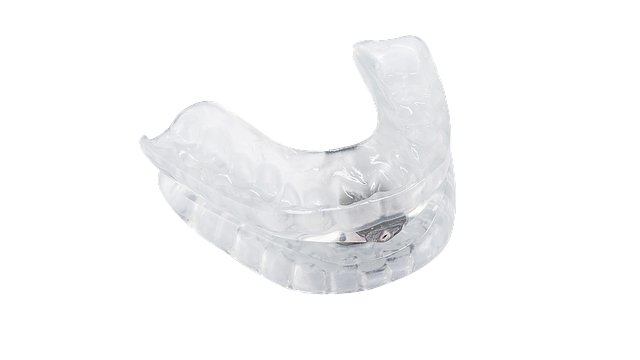
15September
2021
We recently found out that CPAP machines manufactured by Phillips have been recalled, and replacements are close to a year out. That is not good news for sleep apnea patients who rely on their CPAP machines for treatment. But there is good news. For those who qualify, oral appliance therapy is a great alternative to CPAP machine treatment. This alternative can be offered in a shorter time frame and is even more portable for travel. Here is what you need to know. What is oral appliance therapy? The American Academy of Dental Sleep Medicine has stated that oral appliance therapy is a recommended form of treatment for adults with obstructive sleep apnea (OSA) who are CPAP intolerant or prefer an alternate therapy option. While CPAP therapy is still the first-line option for treating OSA, oral appliance therapy is an effective alternative that is preferred by many patients. Despite the fact that treatment with a CPAP machine is extremely successful, there are a number of patients who cannot or choose not to wear the facemask with the attached air compressor. What are the benefits of oral appliance therapy? One of the leading benefits of oral appliance therapy is the increased mobility. […]
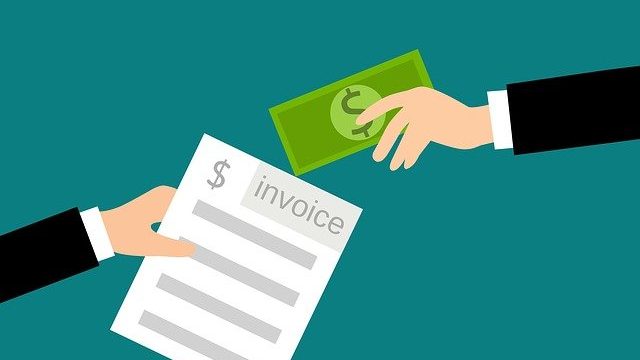
8September
2021
We can’t believe that 2021 is almost over either, but we are looking forward to a better 2022. However, before we begin thinking about next year, there is something you need to take advantage of first. Do you have a flexible spending account (FSA) balance? Do you have money in that account that you don’t know what to use it for? Well, you’re in luck because you can use your FSA balance on dental services such as getting your snoring checked, and your temporomandibular joint disorder (TMD) or sleep apnea treated at AZ Sleep & TMJ Solutions. Let’s take a look. FSA funds are “use it or lose it” Flexible spending accounts, or FSAs, allow employees to obtain reimbursement for various medical expenses. But because they are classified as tax-exempt savings accounts, no employment or federal income taxes are deducted from contributions. In fact, the Internal Revenue Service notes that FSAs have no reporting requirements for federal tax returns. That means distributions are free as long as they are used for qualified medical expenses. The good news is that, yes, they can be used on dental expenses such as all diagnostic and preventative services. For example, if you need […]

25August
2021
Unfortunately, as we learn more, we find a growing connection between depression and anxiety symptoms and temporomandibular joint (TMJ) disorder (TMD) pain. In fact, depression and anxiety only worsen jaw pain experienced with TMD, according to a new study. What is the connection? We know that TMD affects the muscles and joints that connect your lower jaw to the skull. But to make matters worse, anxiety and depression can add to that pain. A study by German researchers looked at more than 4,000 patients who underwent medical and oral health examinations and TMJ pain assessments. On top of that, these patients completed a psychiatric risk factor questionnaire. What the researchers found was that symptoms of depression were more strongly related to TMJ pain than to muscle pain. On top of that, anxiety symptoms were also linked to muscle pain. Pay attention to your mental health When you experience TMJ pain, it may be a physical symptom of depression or anxiety. In fact, these mental health conditions could lead to increased activity in the jaw muscles that can cause inflammation, as well as pain. There is also a possibility that chemical imbalances in the brains of people with depression and anxiety […]
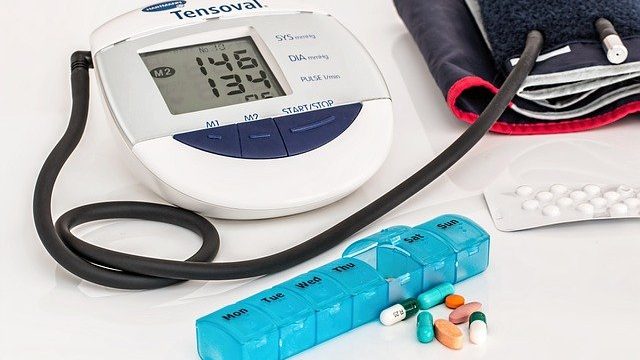
18August
2021
Obstructive sleep apnea can lead to further health complications if it is left untreated. We know that untreated sleep apnea can lead to the body’s inability to regulate blood pressure. In fact, just one bout of sleep apnea can impact your ability to regulate blood pressure. And when it continually occurs, it can only get worse. Here is the connection If you suffer from sleep apnea, you might be experiencing frequent periods of decreased oxygen levels in the body. To make matters worse, just six hours of fluctuating oxygen levels associated with sleep apnea can deteriorate a person’s circulatory system. Additionally, we know that sleep apnea is linked to high blood pressure and can impact the cardiovascular system in one day. Those six hours of fluctuating oxygen levels can lead to the body’s inability to regulate blood pressure. In fact, these changes occur instantly in healthy young adults. This is not something many can prepare themselves for. It’s time to seek treatment for sleep apnea Interventions for those suffering from sleep apnea should take place as soon as you are diagnosed. An easy and comfortable option is an oral appliance, which can be worn without discomfort. It is also easy […]

11August
2021
We have more exciting news to share. Dr. Sara Vizcarra has been named a woman of influence in North Scottsdale by North Valley Magazine! This is exciting news for Dr. Sara and her family as well as her colleagues, staff and, of course, her patients! Let’s take a look at part of the article that is in North Valley Magazine that shares why Dr. Sara is a woman of influence. It’s about her leadership Dr. Sara sets the tone when it comes to leadership. But it goes beyond that. Not only is she a professional, but she is a woman, a Latina and a mother too. She certainly “has built a reputation for herself as a knowledgeable, personable and compassionate” dentist in a wide range of services. She offers services in cosmetic dentistry, pediatric dentistry, orthodontics, prosthodontics and implant dentistry, but she also offers treatment for sleep apnea and temporomandibular joint disorder (TMD). She built an empire as a single mother Adding to her professionalism and expertise, she built a dental empire as a single mother of one. She built Pinnacle Peak Family Dentistry at the base of Pinnacle Peak more than 15 years ago. Since then she has expanded […]

4August
2021
Want to get to know the Valley’s premier dentists who are providing unparalleled levels of care in their practices? Well, you’re in luck because one of them is someone you already know! We are so proud to announce that Dr. Sara Vizcarra is a 2021 Valley Premier Dentist as published in Phoenix Magazine. Why Dr. Sara is a premier dentist As a dentist who is treating sleep apnea and temporomandibular joint disorder (TMD), she already stands out from the rest. Her dedication and commitment to her patients is unlike anyone else. She goes above and beyond oral health to take care of the whole patient. Dr. Sara graduated from the University of Missouri School of Dentistry in Kansas City and practiced public health in her alma mater’s state before she found her way to Arizona. Once she found her place in Arizona, she created a dental office located at the base of Pinnacle Peak Mountain. That is where Pinnacle Peak Family Dentistry blossomed. Since establishing her dental practice more than 16 years ago, she has grown her practice to include other dental providers. This is what helped her to be named one of the premier dental offices in the community. […]
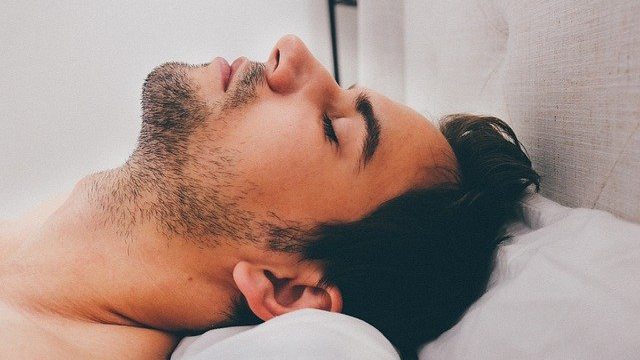
15July
2021
Similar to other health conditions, there are different types of sleep apnea that you might be suffering from. That is why it is important to understand each type of sleep apnea. It helps you to better understand your specific condition for proper diagnosis. Here are three types of sleep apnea to watch out for. Obstructive Sleep Apnea The most common type of sleep apnea is obstructive sleep apnea, or OSA. It occurs when the soft tissue in the back of the throat relaxes during sleep and blocks the airway. This often causes you to snore loudly, which we know how disruptive that can be. Central Sleep Apnea A much less common type of sleep apnea is central sleep apnea, or CSA. This type of sleep apnea involves the central nervous system and occurs when the brain fails to signal the muscles that control breathing. If you suffer from central sleep apnea it is likely that you seldom snore. Complex Sleep Apnea For complex sleep apnea, it is called complex because it is a combination of obstructive sleep apnea and central sleep apnea. It is a form of sleep apnea in which central apneas persist or emerge during attempts to treat […]

15June
2021
What type of headache do you commonly experience? It might be hard to determine because there are so many different types of headaches. You may have even experienced them all already without even realizing it. But, by understanding the three main types of headaches, you can be more educated and prepared when your next headache shows up. Tension-type headaches This is the most common headache we experience. Tension headaches typically occur in about 30% to 70% of the population. This headache results from tension in the muscles in the neck or head whether it be from stress or an injury to the head. Other possible triggers could include alcohol, caffeine, fatigue, or clenching of the jaw. The most important thing to do is establish what tension is causing your headache, and work towards preventing it from happening in the future. Cluster Headaches Cluster headaches are just as complicated as migraines due to the fact that the cause of these headaches are unknown. Looking at the research, it is thought to be related to a sudden release of histamine or serotonin. This can be triggered by factors including alcohol, cigarettes, high altitude, heat, bright light, or exertion. Additionally, cluster headaches tend […]
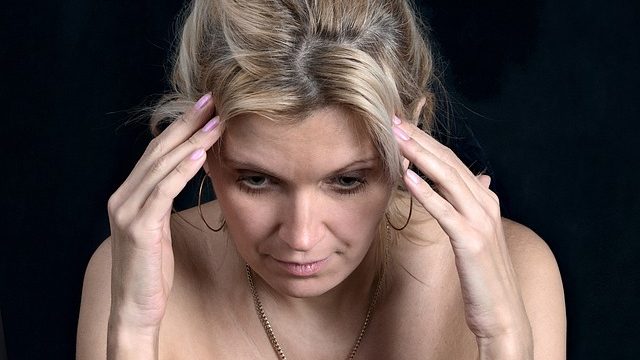
26May
2021
Stress often contributes to a headache, but it can also come out of nowhere. Either way, it might seem like you are constantly battling a headache. We understand how frustrating and painful that can be, but it is important to understand more about your headache–it might be more than just a common ache. Whether you suffer from a headache or a migraine, the underlying cause of your pain might be related to your temporomandibular joint (TMJ). Here are some steps you can take to reduce your risk as well as what treatment might help provide you relief from your pain. Eliminate these risk factors To take steps to alleviate your headache, it is important to reduce the number of risk factors present. Some common causal factors might include: Supporting your bite.Improving sleeping habits.Avoiding certain smells.Drinking less or eliminating alcohol use.Increasing exercise and losing weight.Controlling teeth grinding.Avoiding yeast and preservatives in food.Improving posture. If you can eliminate some or all of these risk factors, you will be taking a big step in the right direction for eliminating your pain. Look to these treatment options First, we will need to determine the type of headache you are suffering from. Once we determine […]

13May
2021
Did you know that your diet affects more than just your weight? It’s true. Because your body is like a well-oiled machine, when something is out of line, every muscle, nerve and movement will be affected. This is the same for a proper diet. When you follow a proper diet, you can potentially avoid pain that often comes with temporomandibular joint disorder (TMD). Let’s take a look at what foods to avoid and what food to incorporate in your diet. Avoid these foods It’s time to at least try something once. Even just trying a food will be beneficial to you. In fact, you never know if you don’t try! After all, you may just find your new favorite food or you might even realize that your favorite food is a culprit for causing you pain. People with TMD have found that cutting back on wheat and dairy, specifically whole grains, can improve their day to day lives. Another thing to avoid would be food with very high artificial supplements such as vitamin C or Iron. Too much of these supplements can lead to an imbalance in your natural levels. As a result, they cause you pain. Additionally, try to […]

30April
2021
When it comes to camping with a friend, family member or significant other, it is important that you enjoy your time together. It isn’t fun if you have to sleep in separate tents or cabins across the camp ground. If your camping buddy is snoring uncontrollably, you might want to guide him in the direction of seeking treatment before you plan your next great trip. Here’s what you need to know about snoring and sleep apnea to prepare for your camping trip. What is Snoring? Approximately 45% of adults snore at least occasionally and about 25% are habitual snorers. The noisy sounds of snoring occur when there is an obstruction to the free flow of air through the passages at the back of the mouth and nose. This area is the collapsible part of the airway where the tongue and upper throat meet the soft palate and uvula. Snoring occurs when these structures strike each other and vibrate during breathing. Snoring can be both socially and medically disabling for various reasons. Socially, it can make the snorer an object of ridicule and can cause the bed partner to experience sleepless nights and fatigue. Medically, it disturbs sleeping patterns and deprives […]
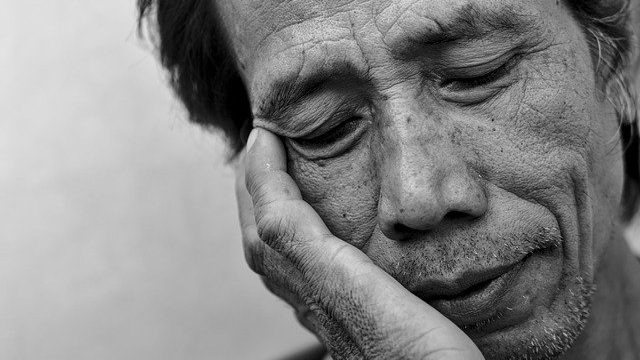
21April
2021
We know that cutting calories and exercising can help you lose weight. But what about sleep? If you don’t get enough sleep, some people might have a harder time getting rid of excess body fat. When you want to lose weight, it is important to make sure you do not lose out on sleep during the week because there is no such thing as catching up on sleep during the weekend. Let’s take a closer look. The connection between sleep loss and obesity If you are suffering from sleep deprivation, it is linked to an increased risk of obesity. And as we mentioned above, inadequate sleep has been linked to difficulties with weight loss. Without sleep restriction, people typically got about seven hours of sleep each night. Those that had sleep restriction got about six hours of sleep during the week and about eight hours on the weekends. If you are trying to lose weight, you should aim for about seven or eight hours of sleep each night. More sleep isn’t necessarily to lose weight. However, people who typically get less than this might want to begin to get more rest if they are overweight or obese. To learn more […]

14April
2021
When sleep apnea goes untreated, it can be extremely dangerous because it can lead to a variety of health conditions. Those health complications include increased risk for cardiovascular disease and type 2 diabetes. It is important to be aware of these health complications of sleep apnea. Let’s take a look at the connection between sleep apnea and stroke. The heart disease and stroke connection When someone suffers from sleep apnea, it can lead to heart attacks. As a result, people can die in the middle of the night due to low oxygen or the stress of waking up frequently throughout the night. Heart disease is the leading cause of death in America while stroke is the fourth. And a major risk for both conditions is high blood pressure. The relationship between sleep apnea, hypertension, stroke and heart disease is very strong, which makes it vital that everyone understands this connection as to further prevent the development of aphasia as well. We know it may not seem like any good can come from this, but there is good news to keep in mind. Sleep apnea can be easily treated to prevent stroke and other comorbidities, which is why it is more […]

7April
2021
Your temporomandibular joint, or TMJ, is the most heavily used and under appreciated joint in the human body. The TMJ is the reason you can open and close your mouth as well as extending and moving your jaw side-to-side. This joint helps you eat, talk and express yourself through facial expressions. It’s easy to see that without your TMJ, you would not be able to do the most common tasks of eating and talking. The unfortunate thing is the TMJ tends to go unnoticed unless something goes wrong. Here are some complications that are associated with the TMJ. Teeth grinding Also known as bruxism, teeth grinding is a very common problem associated with TMJ. For many people, teeth grinding will occur while they are sleeping. Since teeth grinding most often occurs while you are sleeping, you may not be aware you are even doing it. But the noise can be enough to wake up your bed partner or even annoy them. If you suffer from bruxism, you might also find that you are waking up with tightness and soreness in your jaw muscles. Over time, bruxism can cause the destruction of tooth enamel, the formation of gaps between teeth, and […]

31March
2021
Have you found that you suffer from headaches more often than you don’t? Sometimes headaches can be so disruptive that you lose out on some of your tasks that need to be accomplished for the day. If you do suffer from headaches, it is important to understand the underlying cause. But it is also important to visit your dentist because they can provide treatment options that can help relieve your pain. How can your dentist help? Tension headaches typically come from muscle strain that develops in the jaw and mouth. Your dentist can check to see if this strain is actually the result of a misalignment of your jaw, which would cause incorrect biting. If your jaw or teeth are not aligned properly, it can lead to muscle strain that eventually causes headaches and painful migraines. Your dentist can recommend proper treatment to relieve your pain and improve your jaw alignment. Additionally, misalignment might be causing you to grind your teeth at night. This can cause you to wake up in the morning with a headache, which is never something you want to deal with when waking up. Contact us at AZ Sleep and TMJ Solutions to learn more about […]

21March
2021
When you think of your oral health, do you ever think about the connection with your overall health? Well, you should. There is actually a direct connection between your oral health and headaches. Here is a closer look at how toothaches and other oral health issues can cause headaches. Toothaches and headaches One of the main causes of a migraine is a toothache. Ouch! That is often because almost all headaches and toothaches are detected by one of the largest nerves in the head: The trigeminal nerve. This nerve actually provides sensation to most of your face, including your teeth and gums. When your tooth aches, the trigeminal nerve can get irritated and trigger a migraine headache. Teeth grinding and headaches Bruxism, also known as teeth grinding, may not necessarily cause a headache, but it can refer the pain to your head. When referred pain occurs, you feel a painful sensation in a different part of your body from where the pain actually exists. In fact, the sensation travels through nerve connections. TMD and headaches If you suffer from temporomandibular joint (TMJ) disorder (TMD), it can contribute to headaches as well. TMD can cause pain in the joint and muscles, […]
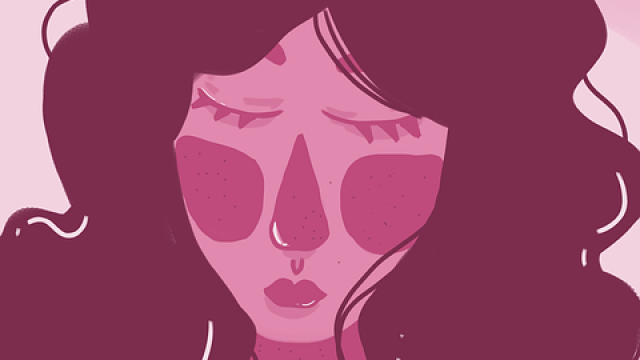
11March
2021
Have you noticed a change in your alertness lately? Perhaps your partner is waking you in the middle of the night complaining about your snoring. Are you struggling to make it through the day without a nap? You may have sleep apnea! The definition of sleep apnea Sleep apnea occurs when your body stops breathing multiple times throughout the night. These moments can last from seconds to minutes, often happening more than five times per hour. When your breathing resumes, it is usually accompanied by a snort or choking sound. Obstructive sleep apnea is the most common diagnosis. This occurs when the soft tissue at the back of the throat collapses, blocking the airway. Central sleep apnea is more serious of a case, as the part of the brain that controls breathing will not send the proper signals to the breathing muscles. Most people are unaware that they have sleep apnea, as you are unconscious when all of this occurs. However since your sleep is interrupted with these occurrences, you will notice much greater fatigue and irritability during the day. Who is at risk for sleep apnea? Statistically, men are twice as likely to be diagnosed with sleep apnea than […]
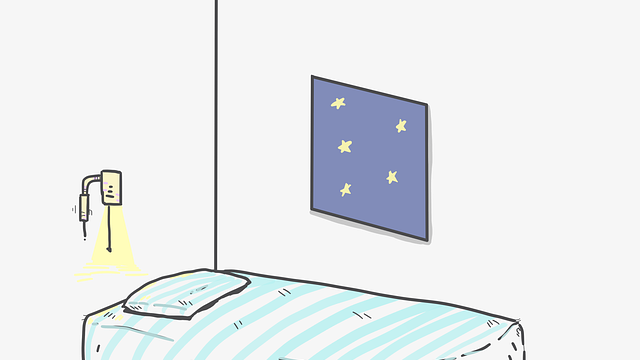
4March
2021
If you or someone you know has been diagnosed with sleep apnea, it is important to know the dangers of leaving it untreated. Sleep apnea occurs when your airway is momentarily blocked during sleep, leaving your breathing interrupted. Sleep is one of the most important parts of a healthy lifestyle, right up there with regular exercise and heart health! Telltale signs of sleep apnea The most common type of sleep apnea is obstructive sleep apnea (OSA). This occurs when the airway is blocked. One of the most obvious signs is the snoring accompanied by the disease. This is often noticed by the partners of those with OSA. People with sleep apnea may notice unexplained fatigue and irritability. This is due to the interruptions in their sleep, preventing them from getting a full night’s rest. These added obstacles in the day can be dangerous. These symptoms can affect a person’s driving, performance at work, and alertness in class. It is imperative to your life and others that once diagnosed with sleep apnea, you find the proper treatment that works best for you. Risks along with sleep apnea Studies have shown that other life-threatening diseases are associated with sleep apnea. Diseases such […]

17February
2021
Sleep is a crucial part of growth and development for children of all ages. Though your child may be getting the proper amount of sleep each night, they may not be getting enough rest. Studies have confirmed a link between nightmares and snoring, leading to health problems for children down the line. Why do nightmares cause headaches? Nightmares are inevitable for both children and adults. We can try to prevent them by de-stressing before bed, avoiding scary movies or images, etc. However, you can never fully prevent them. For children, nightmares can cause a condition called “bruxism.” This is a condition where children and adults grind their teeth at night, resulting in headaches the next day. With bruxism, you are involuntarily grinding your teeth throughout the night. This is damaging to your teeth, jaw and overall well-being. Diagnosing sooner rather than later ensures a quicker solution. Can you prevent bruxism? Nightmares and snoring are two factors that may play a role in a child’s diagnosis of bruxism. If we find what is causing these nightmares, we may be on the path to a solution! Nightmares are caused by anxiety and stress. It is important to take note of your children’s […]
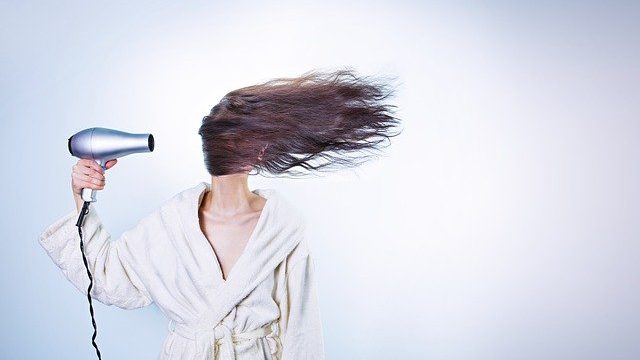
10February
2021
As COVID-19 continues to grip the nation, more and more pandemic-related illnesses and physical ailments are rising. From shingles to quarantine fatigue, Americans are going through a lot. One common problem is cracked teeth. Were cracked teeth a problem prior to the pandemic? Cracked teeth aren’t uncommon by any means, but the cases have risen quite a bit since COVID-19 first hit. According to CNN, for an oral surgeon in San Diego, Dr. Paul Koshgerian, one cracked tooth per day or even every other day was the norm. Now, two cases per day is the regular, with worse days treating five cases of cracked teeth. Dental professionals across the country are noticing a spike in their numbers of patients with cracked teeth, and it doesn’t seem to be slowing down. How does COVID-19 cause cracked teeth? COVID-19 alone does not cause cracked teeth. The cause of cracked teeth stems from the anxiety in our world today. COVID-19, politics, protesting, looting, and riots are just a few of the things creating stress and anxiety in our nation. With this amount of stress, people can involuntarily grind their teeth or clench their jaw, resulting in broken crowns, fillings, and teeth. When is […]

3February
2021
When you think of botox, your mind may go to plastic surgery and celebrities. However, botox is actually quite successful in reducing the pain of chronic migraines. This treatment is not for everyone, so it is important to discuss your options with a doctor before proceeding. Who is eligible? Botox injections are only available to those with chronic migraines, meaning people who have a headache 15 days or more per month. The more headaches per month, the more effective the botox injections will be. Patients must be 18 years or older to receive botox treatment. For anyone younger than 18, insurance companies may not pay for it. How does Botox help migraines? First, it is important to understand botox as a treatment. Botox is a form of botulinum toxin which is a neurotoxin. When this toxin is purified and used in tiny doses, it will effectively reduce muscle contractions for 3 months! This is a great thing to hear for those with chronic migraines. When injected around the pain fibers that cause headaches, the botox will block the release of chemicals involved in pain transmission. Botox injections may take a couple times to become effective in preventing migraines, but once […]

28January
2021
As the COVID-19 pandemic shows no sign of slowing down, more and more studies of high-risk populations are getting some much deserved attention. Upon recent studies, patients with obstructive sleep apnea (OSA) have a greater risk of contracting the deadly COVID-19 disease. OSA is an intermittent blockage of airflow during sleep. Too much attack on the respiratory system could lead to hospitalization and/or respiratory failure. Where to begin with the studies? During this particular study, researchers gathered data from the Northwestern Medicine system which covers 10 hospitals in the Chicago metropolitan area. This data spanned from January of 2020 to June of 2020. With certain specifics such as age and BMI, researchers narrowed down their search group. They evaluated risks for COVID-19, hospitalization, and respiratory failure associated with OSA. The results are in After the study, researchers got to work analyzing the relationship between COVID-19 and OSA. Over 5.5 million records were analyzed, with 9,405 COVID-19 infections. This finding showed that a greater portion of the people were male, Black, and had been diagnosed with OSA. Those with OSA required more hospitalization than those who did not. How do we trust the numbers? The studies show that those with OSA […]

21January
2021
There are a lot of myths floating around regarding sleeping and sleeping habits. It’s important to note that most of them are just that, myths. However, some of them may be true! Let’s take a look at five common sleep-related myths and see just how true they are! Can you die from a lack of sleep? This is somewhat true, but not because of a lack of sleep alone. Humans cannot die from sleep deprivation, but the consequences of sleep deprivation can. When sleep deprived, your body is not functioning at the proper level of alertness. Because of this, there is an increased chance of vehicular accidents and immune system suppression. Your body needs sleep to recover and prepare for illnesses. Without sleep, your immune system is less likely to fight off bugs and viruses, and your brain is not ready to react to changing traffic. So technically, no, you cannot die from a lack of sleep. You can, however, die from the consequences of a lack of sleep. Can some people live better with just 6 hours of sleep? This is true! There are some people who thrive on low amounts of sleep. Researchers have found that there is […]

13January
2021
If you are suffering from jaw pain or temporomandibular joint disorder (TMD), it can interrupt your daily life. However, there is another treatment option available that can help you find relief from your pain: prolotherapy. Let’s take a look at what prolotherapy is and how it can help relieve your jaw pain. What is prolotherapy? Prolotherapy, also known as regenerative injection therapy, requires the use of an injection of a diluted dextrose solution into the jaw joint. In doing so, it helps to promote healing. In fact, research has shown that this technique can be used to reduce pain originating from inflamed jaw joints. It can also help stabilize joints that exhibit hypermobility. Injections will typically be performed in one or both joints, depending on the pain and your condition. These injections are often repeated at two week, six week and three month intervals. Again, this will depend on your condition and the severity of the pain. After prolotherapy Once your prolotherapy is complete, you may experience mild to moderate pain at the injection site for a couple of days after. This may be due to the activation of the immune system and the trigger of a reparative healing response. […]
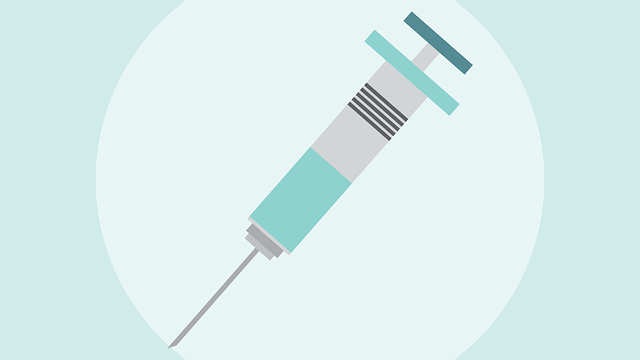
6January
2021
If you are experiencing muscle pain, it can develop for a variety of reasons. While many types of muscle pain can go away after a couple of days of rest, some people aren’t as lucky. The persistent or chronic jaw pain or headache pain may require further medical treatment. Luckily, there is a solution for jaw pain and headache relief: trigger point injections. What are trigger point injections? A trigger point injection is used to help soothe muscle pain and can be used to treat tension headaches and myofascial pain, among other complaints. To get more specific, trigger points are painful knots in your muscles that form when a muscle can’t relax. In fact, you may be able to feel these knots when you rub your muscle. By injecting small amounts of anesthetic and steroid into the trigger point, it can help to alleviate the pain. You will either sit down or lie down for the procedure. To locate the area where you have pain, your doctor will press down on the muscle. They will then insert a small needle into the area and inject the anesthetic and steroid mixture. You can have several trigger points injected in one sitting, […]

28December
2020
Rheumatoid arthritis (RA) is an inflammatory disorder that affects the joints, particularly the hands and feet. However, other joints in the body can be affected as well, including the jaw. We often forget how frequently we use our jaw to talk, to eat, to drink, because it comes so naturally. If your rheumatoid arthritis is getting in the way of you enjoying your favorite meals, it’s time to talk to your doctor! What is the TMJ? The TMJ is the temporomandibular joint–your jaw. This joint is responsible for opening and closing your mouth, a very important task! This everyday bodily function can be disrupted by TMJ disorder, teeth grinding, and even rheumatoid arthritis. Keeping your TMJ “well-oiled” is crucial to a pain-free life. What are the warning signs? If you are noticing pain near your ear while eating or chewing, it’s time to take a closer look. You may hear clicking in your jaw, or even a locking sensation where you can’t seem to open your mouth comfortably. As this progresses, these pains and sensations will occur whenever you have any sort of RA flare-up. As time goes on, if this pain is left untreated, you could see more severe […]

18December
2020
There are more than 200,000 cases of sleep apnea each year in the United States. Sleep apnea is a sleep disorder where the airway becomes blocked while you are asleep, causing your breathing to stop and start repeatedly. A good night’s sleep is essential to a healthy lifestyle, so we must ensure that it is uninterrupted and safe. Newfound research In a recent study conducted by Bradley Phillips, director of UGA’s Biomedical and Health Sciences Institute, researchers investigated the connection between Obstructive Sleep Apnea (OSA) and autoimmune diseases. An autoimmune disease occurs when the immune system accidentally attacks healthy cells. Some autoimmune diseases include rheumatoid arthritis, lupus, and multiple sclerosis. Unfortunately, these autoimmune diseases aren’t reversible, they are just something you have to learn to cope with. The correlation between sleep apnea and autoimmune diseases has been known for sometime, but the research hasn’t been strong enough to reach any conclusions. What the research shows Researchers began by looking at four different inflammatory cytokines, particularly cytokines that were higher in individuals with autoimmune disorders. With many different variables evaluated, the research showed that the cytokines in the airways treated for OSA were drastically different than the levels in those with […]
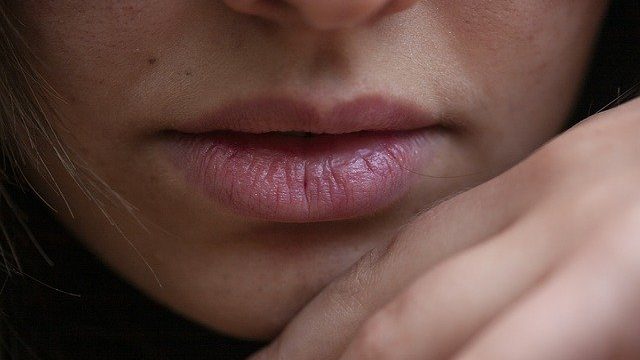
10December
2020
Have you noticed any pain or discomfort in your jaw, neck and/or head? You may be experiencing pain caused by the temporomandibular joint. This joint is responsible for opening and closing your mouth, chewing, and talking. It may be time for you to visit an oral specialist to put a stop to the pain! Symptoms of TMJ TMJ isn’t always easy to detect. It can start off with minimal symptoms, but then progressively lead to more. Symptoms such as clicking or locking of the jaw, loose or sensitive teeth, pain when opening and closing your mouth, and discomfort while eating are some of the telltale signs of TMJ. Treatment options Don’t fret! TMJ is treatable, especially if you detect it early on. Treatments will most likely be a mixture of at-home remedies and prescribed treatments, depending on the severity of your case. Some suggestions include: resting your jaw instead of clenching when not talking or eating, choosing soft foods instead of hard or chewy foods, applying ice or heat, exercising your jaw, and wearing a mouthguard at night. These are all self-care options that could save you time and money, as long as it treats your symptoms. For more severe […]

2December
2020
With COVID-19 making its way through the nation, we are seeing more and more long-term effects in individuals who have tested positive. Sleep apnea is one link with the novel Coronavirus, waving a red flag for individuals already living with sleep apnea. Understanding sleep apnea To better understand the risk factors of COVID-19 with sleep apnea, it is important to first define sleep apnea. Sleep apnea occurs when your breathing stops and starts repeatedly throughout a night’s sleep. This disorder is not taken lightly, and combined with a serious and new virus such as COVID-19, doctors are warning all patients to take extra precautions in protecting themselves. Research in Finland In a recent study conducted in Finland, doctors noticed a correlation with sleep apnea and COVID-19. “More than 1 in 4 patients with coronavirus disease 2019 (COVID-19) admitted to the hospital during the first wave of the pandemic in Finland were found to have obstructive sleep apnea (OSA).” This is crucial information for doctors across the globe as it reveals yet another at-risk population. Understanding this study will help future patients with sleep apnea or other sleep related disorders. What does this research mean? Studying this connection between sleep apnea […]
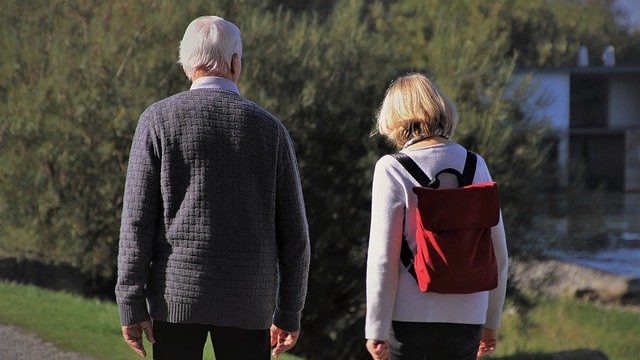
27November
2020
As more research is done, we learn more about other connections with sleep apnea. This shows that it is important to seek treatment for sleep apnea. The latest connection that researchers have uncovered is a link between dementia and sleep apnea. Here is what we know about the link between sleep apnea and dementia. What is the link? Obstructive sleep apnea can lead to an increased risk of dementia. A study published in the Journal of Alzheimer’s Disease found that severe sleep apnea is linked to an increase in a protein called, “beta-amyloid.” This protein builds up on the walls of the arteries in the brain and increases the risk of dementia. The researchers looked at 34 individuals with untreated sleep apnea and 12 who were asymptomatic for sleep disorders. For those with sleep apnea, there was a higher amyloid burden, poorer sleep efficiency and less time spent in stage N3 sleep, which is a regenerative period where your body heals and repairs itself. While more research is needed, this will allow us to explore in more detail the true implications of treating sleep apnea for reducing dementia risk. Seek treatment for sleep apnea Knowing this connection means it is […]
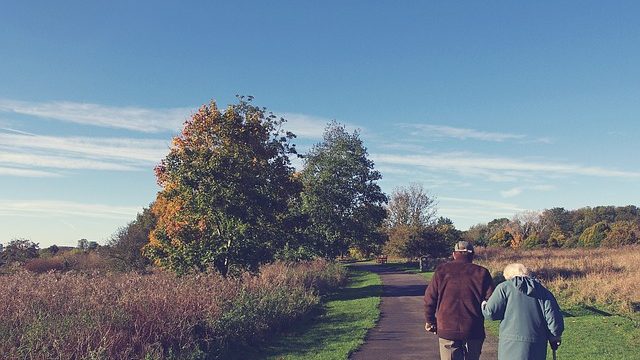
19November
2020
Research around Alzheimer’s disease continues to advance. It seems that every year we are closer to understanding more about Alzheimer’s and other conditions. In fact, research has found that decades before symptoms of the disease are detected, molecular changes are present in the brain. We also know that there are links between Alzheimer’s and sleep apnea. What is the link? This might sound confusing, but bear with us on this explanation. Researchers note that clumps of amyloid-beta and tangles of another protein called “tau” begin to accumulate in places. This signals a gradual decline in the brain’s health. Alzheimer-like amyloid plaques have also been discovered in brain tissue samples of people with obstructive sleep apnea. This has signals a connection between sleep apnea and Alzheimers. It means that if you have sleep apnea in mid-life, you are most likely to develop Alzheimer’s when you are older. And if you have been diagnosed with Alzheimer’s, you are then also more likely to have sleep apnea than other people your age. If you suffer from obstructive sleep apnea, you can experience shortfalls in memory, which is a classic symptom of Alzheimer’s disease. You may also have a higher risk of developing dementia. […]

11November
2020
More than 10 million Americans suffer from temporomandibular disorder (TMD). The pain and dysfunction associated with TMD are more prevalent among women during reproductive years. This suggests that estrogen plays a role in TMD. The role of estrogen in TMD Women have unique hormonal changes that they experience, which can lead to increased sensitivity to oral health problems. Looking at these hormonal changes, they not only affect the blood supply to the gum tissue, but also the body’s response to the toxins. This can result in plaque build up. As a result, women are more prone to periodontal disease as well as other oral health problems. In particular, researchers have found that the use of synthetic estrogens, or birth control pills, can lead to decreased levels of natural estrogen. Decreased levels of natural estrogen can be associated with TMD. The connection between birth control pills, decreased natural estrogen and temporomandibular joint (TMJ) disorders appears to be present. Combining compression within the joint caused by TMD and low levels of natural estrogen, women can experience increased inflammation. This can also lead to osteoarthritis in the joint. How women can prevent oral health complications There are ways for women to prevent the […]

4November
2020
This pandemic is causing a lot of stress and anxiety on everyone. However, that added stress has led to a significant rise in orofacial and jaw pain, as well as jaw clenching in the daytime and teeth grinding at nighttime. Women are suffering more Research has found that women suffered more from jaw clenching and teeth grinding than men. In fact, those between the ages of 35 and 55 suffered the most. This shows that the distress felt by the middle generation is suffering the most because they are at home with young children, are missing the usual help from grandparents, worry about their elderly parents, face financial problems and are often required to work from home under trying conditions. The rise in jaw clenching and teeth grinding is due to the added stress that everyone is feeling, which means it is important to find ways to calm that added anxiety and stress. This can help to prevent further complications, such as temporomandibular joint disorder. Focus on what you can control One way to overcome added stress is to focus on what you can control. For example, while you can’t control the impact of the COVID-19 pandemic, you can take […]

29October
2020
Have you noticed a cracking sound that comes from your jaw? If so, it might occur with jaw and pain and discomfort. It may also lead to difficulty with moving your jaw or chewing, depending on the underlying condition. For that reason, it is important that you receive a proper diagnosis and treatment because your jaw pain and discomfort might be a sign of temporomandibular joint (TMJ) disorder (TMD). What is TMD? Well, your TMJ attaches your jawbone to your skill. If there is something wrong with the joint, that is TMD, which can make your jaw crack or pop. Some other symptoms of TMD are: Jaw stiffness. Locking of your jaw. Limited jaw movement. Pain in your jaw, face or neck. TMD often develops without a specific cause, but, occasionally, clenching your teeth due to emotional stress can play a role. Some other causes of your jaw discomfort or pain can be arthritis, facial injury, myofascial pain syndrome, obstructive sleep apnea and a misaligned bite. Treating the underlying cause of your jaw pain There are a variety of treatment options available, depending on the cause and diagnosis of your jaw pain or discomfort. The following home remedies can often […]
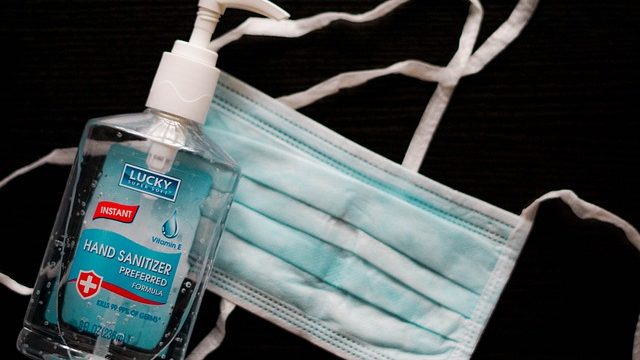
22October
2020
At AZ Sleep & TMJ Solutions, we have always been dedicated to ensuring the health and safety of our patients as well as our dental team. That is no different during the COVID-19 pandemic. In fact, we continue to adjust and improve on the preventive measures we implement throughout our entire practice. It is vital to our ongoing commitment to helping you maintain optimal oral health and wellness. While we might have shared this before, we want to continue to reassure you of the preventive measures we are taking, especially with COVID-19 cases rising across the country. We remain dedicated to providing you a safe environment to receive the treatment you need to live a healthy, happy life. As we continue to navigate the COVID-19 pandemic, we aim to provide you with the best care possible while following proper preventive measures. We hope you will do the same. We follow these preventive measures to keep you safe During these unprecedented times of the COVID-19 pandemic, some of the added preventive measures we continue to follow at AZ Sleep & TMJ Solutions are: Daily temperature and wellness checks for all team members. Pre-screening and wellness checks for all patients. Prior to […]
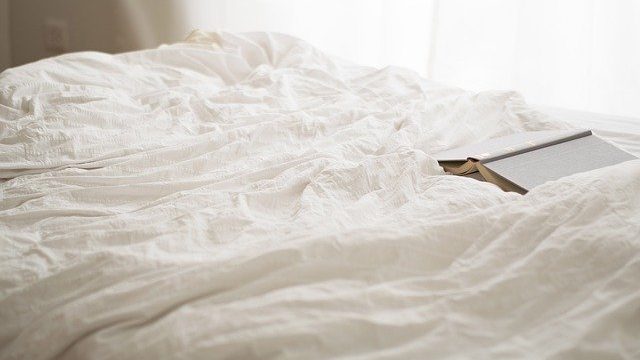
14October
2020
We continue to learn new information about COVID-19 as we navigate this pandemic. While things remain unknown, we have learned that people with COVID-19 and obstructive sleep apnea (OSA) may be at an increased risk for complications, according to a study published in Sleep Medicine Reviews. What the study found In this study, researchers looked through databases through June 2020. They searched for papers that included data on COVID-19 and sleep disorders. What they found were 18 studies that looked at both pieces. These studies examined comorbidities that are associated with poorer COVID-19 outcomes, including diabetes, hypertension, lung diseases and cardiovascular diseases. Those conditions led to higher instance rates among patients with OSA. Two studies also found that more than 20% of patients in the ICU for COVID-19 also had sleep apnea. In fact, one study found that individuals with OSA and diabetes had an increased risk for death on day seven. We understand that is alarming, but what can help is seeking treatment not only for conditions like diabetes and hypertension, but sleep apnea as well. Treating sleep apnea The most common treatment for OSA is the continuous positive airway pressure, or CPAP therapy. However, CPAP therapy is an […]
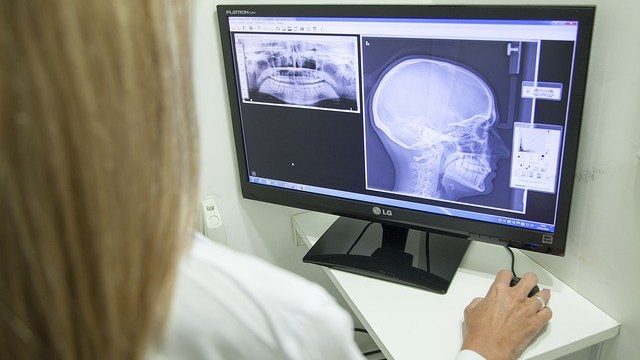
7October
2020
Jaw pain, or pain in the temporomandibular joint (TMJ), can be confusing. In fact, when there is TMJ pain or soreness, it can sometimes radiate in other areas of the head, leading to confusion for where the pain is actually coming from. By understanding temporomandibular joint disorder (TMD), you can, perhaps, know what to look out for. To help you better understand TMD and the pain you may be experiencing, we have put together some information for you to follow. What are the causes of TMD? There are actually a variety of factors that lead to TMD. Unfortunately, though, there is not just one specific cause or treatment for TMD. In fact, this disorder can be caused by problems with the structure of the anatomical joint, the muscles we use to chew or head and neck muscles. Depending on the diagnosis, there are different treatments available. The most common form of TMD is myofascial pain, which results in discomfort or pain in the fascia and muscles used to chew or that control the neck and shoulder function. Internal derangement of the joint, which involves a dislocated jaw or displaced disc, can also be a cause of TMD. While the actual […]
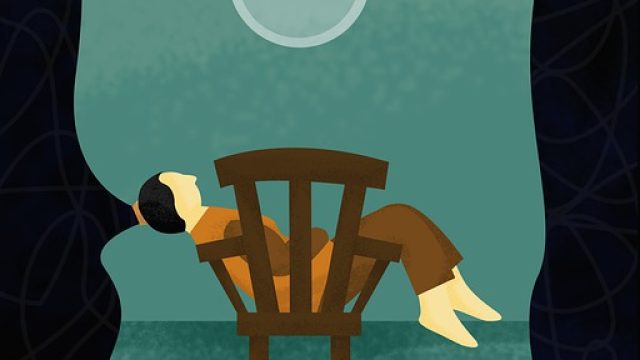
30September
2020
Whether you are at home alone or in a house full of people, working full-time or searching for a new job, the added stress caused by the COVID-19 pandemic can take a toll on your ability to sleep. If you are experiencing sleepless nights, it isn’t insomnia. There’s actually a new term for what you are experiencing: It’s called, “coronasomnia.” Understanding coronasomnia Even if you try to go to bed and wake up at the same time every day, you might find you’re still having sleepless nights. If you find yourself watching the news before bed or searching social media at night, it can lead to increased stress and anxiety. As your head hits the pillow, your thoughts might race into overdrive. That anxiety over coronavirus, or SARS-CoV-2, is leading to coronasomnia, which is an epidemic inside a pandemic. Even children can feel the stress from the pandemic, causing sleep issues for them as well. Losing sleep can affect the immune system Stress can lead to sleep deprivation and insomnia, which, in turn, can make you even more stressed. But that can also lead to immune system issues. What researchers have found is that people who do not get good, […]
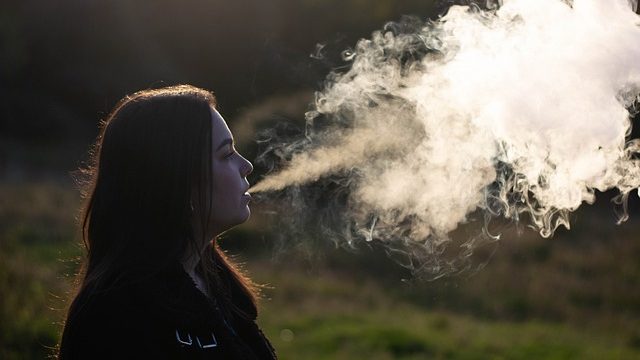
24September
2020
The short answer is, “Yes.” When you vape, it does impact your sleep, and not in a good way. There seems to be an ongoing battle between health and use of electronic cigarettes. But all signs point to the negative impact that vaping has on a person’s health, extending to sleep. Understanding e-cigs Teenagers and adults find electronic cigarettes to be all the rage these days. Many have chosen vaping as a way to quit. However, most still continue to use e-cigs long after they decided they wanted to quit smoking. Unfortunately, though, many believe that they are inhaling lower levels of nicotine, making it safer. It is not. Anyway you look at electronic cigarettes, vaping is not good for you and it should be avoided. While lower nicotine levels might seem good, the nicotine is still in your system, which can lead to negative outcomes. How is it connected with sleep? There still remains a lack of research around the nicotine delivery system of e-cigarettes. Additionally, there is also a lack of regulation of the ignition components and the nicotine-infused liquids that are heated to create the smoke or “vape.” One possible effect is on your sleep. In a […]

16September
2020
We all know that puberty is a natural part of growing up. However, not everyone goes through puberty at the same rate, which can impact your sleep. In a recent study, researchers found that the earlier someone goes through puberty, the more complications will occur. Let’s take a look at how puberty and sleep deprivation impact women. Negative ramifications Some girls go through puberty as early as 8 years old and usually by the time they are 13 years of age. However, some might go through puberty later than that too. However, earlier onset of puberty in girls leads to a variety of ramifications for their health throughout their lives. One aspect is the relationship between when a girl goes through puberty and the length of time they sleep every night. In a study of 8,327 girls and 335,410 women, researchers looked at the effect of earlier puberty with self-reported sleep duration in adults. By 13.5 years old, girls who started puberty later reported sleeping more than nine hours a night. This was significantly longer than girls who began puberty at an earlier age. Puberty and weight gain Since the start of puberty in girls also affects obesity, it is […]

9September
2020
Everywhere you turn, there is something new about the current COVID-19 pandemic. Depending on your level of interest with what is going on in the world, you might find yourself scouring social media all day and night. It may have even gotten to the point that this is what you search on a daily basis from the time you wake up to the time you go to sleep. Whether it is Facebook, Twitter, Instagram, LinkedIn, SnapChat, TikTok or any other social media platform, we are online just about every part of our day. While it is hard to disconnect, it is important that you are mindful of when you mindlessly scroll through social media, especially if it is at nighttime because it can disrupt your sleep. Who has poor quality sleep? More than 800 freshman college students who use social media were analyzed. Researchers were looking at the differences in the characteristics of poor and good sleepers as it relates to social media use–during the day or nighttime. After compiling their research, they found that 75% of the college students polled had experienced poor quality sleep. When comparing genders, 66% of men compared to 79% of women expressed that they […]

2September
2020
We continue to learn more and more every day about COVID-19. As new information becomes available, we encourage you to visit the Centers for Disease Control and Prevention’s (CDC) website to remain up-to-date on important COVID-19 information. While people of any age can catch SARS-CoV-2, the virus that causes COVID-19, certain medical conditions increase your risk for severe illness. Let’s take a look. These medical conditions increase risk for severe illness Regardless of your age, if you have one of the following medical conditions, you are at an increased risk of severe illness from COVID-19, according to the CDC: Cancer. Chronic kidney disease. Chronic obstructive pulmonary disease. Immunocompromised state (weakened immune system) from solid organ transplant. Obesity (body mass index [BMI] of 30 or higher). Serious heart conditions, such as heart failure, coronary artery disease, or cardiomyopathies. Sickle cell disease. Type 2 diabetes. What is important to note is that several of these conditions also increase your risk of developing sleep apnea: obesity, type 2 diabetes and heart conditions. Who else might be at risk? Because COVID-19 is a new disease, we do not know everything. However, there is speculation from researchers and the medical community that people with the […]

26August
2020
These unprecedented times have led to a complete disruption in our routines. While we understand that you may not be able to do a lot of what you used to do, it is important to know that there are alternatives. Because obesity is the leading cause of sleep apnea, it is vital that you improve your overall health and work toward losing weight. Maintaining a healthy weight can help you prevent countless medical conditions and improve your sleep. Here are some tips to help you maintain optimal overall health and well-being while losing weight and improving or eliminating your sleep apnea symptoms. Exercise regularly Try to aim for exercising or participating in some form of physical activity at least three times a week. This will help keep you healthy and allow you to lose weight. While you shouldn’t go to the gym right now, you can still find activities around your house or neighborhood that are safe to complete. Try going for a walk around the block and increase the distance each time. But don’t forget your mask just in case you encounter a larger crowd of people, such as in a big city. If you are in a quiet […]
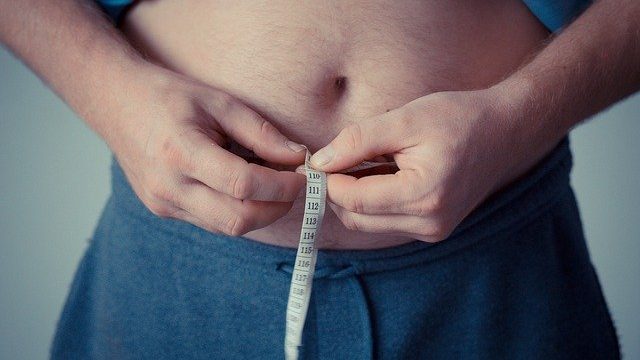
20August
2020
We know that anyone can get infected with SARS-CoV-2, which is the virus that causes COVID-19. This is a rapidly evolving situation and the more we learn about this new disease, the better we can continue to care for our patients. Additionally, it has become increasingly clear that some people are more vulnerable to severe illness than others, including those with obesity. Since this pandemic is not going anywhere anytime soon, it is important to understand as much as we can. Obesity and COVID-19 By now you might have already heard that older adults and people with underlying health conditions such as diabetes or heart disease are more vulnerable to developing a severe case fo COVID-19. However, even if you feel healthy, being overweight can increase your risk as well. Obesity is actually the number one risk factor for developing a severe case of COVID-19 in people under the age of 55. To make matters worse, if you do develop a severe case of COVID-19 it is much harder to recover from the disease. Whatever the reason for a person’s increased risk, it is vital that you take steps to improve your health. Everyone should be physically distancing, wearing cloth […]
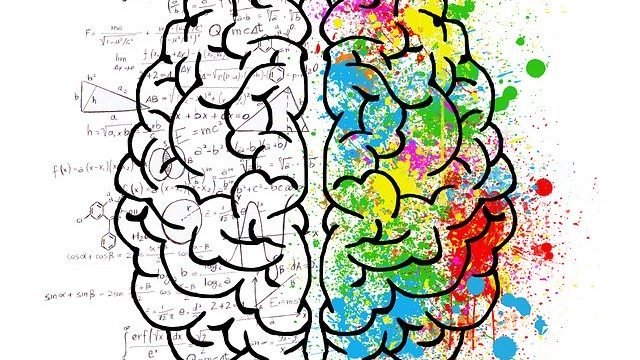
12August
2020
This is an important question to ask. During the COVID-19 pandemic, there has been a lot of new information emerging on a daily basis. We want to make sure you have all the up-to-date and important information regarding your health and well-being as a patient with sleep apnea. From stay-at-home orders to mask mandates across the country, it can be confusing and stressful to understand what is allowed and what is not. We completely understand that and hope we can help ease your fears during these unprecedented times. We are all still on high alert due to COVID-19, but we also need to pay attention to your health and current conditions, such as sleep apnea. If you do have a sleep apnea diagnosis, here are some things to keep in mind to continue to protect yourself and manage your condition. Address feelings of anxiety As the pandemic continues, it is vital for patients with sleep apnea to continue their treatment–whether it is with CPAP or an oral appliance. However, it is also key to pay attention to your anxiety. So many people are experiencing heightened anxiety about the pandemic, which can add to sleep troubles. Additionally, if you are worried […]
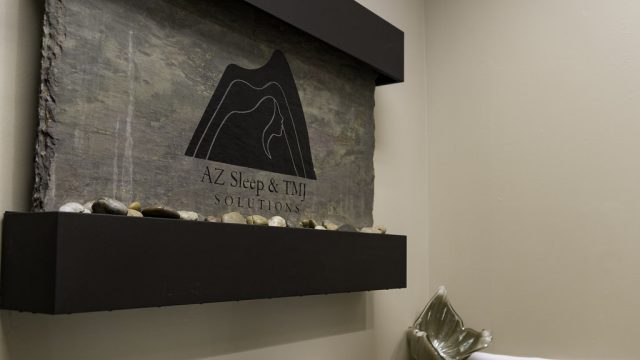
5August
2020
These are unprecedented times right now. As we continue to work through the constantly changing and evolving COVID-19 pandemic, we want you to know that we always have our patients’ best interests at the top of our minds. We know that our community has been through a lot over the last few months and while many things have changed, one thing has remained the same: our commitment to providing quality dental care. The health and safety of our patients remains our highest priority. We’ve implemented added safety measures Over the course of the COVID-19 outbreak, we have followed National, State, and Dental guidelines very closely to develop protocols to keep our patients and team members safe during every dental appointment. Rest assured we are taking additional precautions throughout our office to maintain a clean and healthy environment for your care. Here are some of the measures we continue to take to keep you safe now and in the future: Temperature and wellness checks for all team members are completed daily. Pre-screening and wellness checks are performed for all patients. Prior to every appointment, temperatures will be taken with a touchless thermometer. Temperatures above 100 degrees Fahrenheit will be rescheduled. Hand […]

29July
2020
This year summer might look and feel differently than in previous years. With the current COVID-19 pandemic, you might be searching for innovative ways to get away on a little vacation. A lot of people are turning to road trips and camping. But what if someone you are going with snores? It just might ruin your trip. Here’s what you need to know about snoring and sleep apnea to prepare for your upcoming camping trip. What is Snoring? We know that about 45% of adults snore at least occasionally. There are also about 25% of individuals who are habitual snorers. Either way you look at it, someone is losing sleep. The noisy sounds of snoring occur when there is an obstruction to the free flowing air through passages at the back of the mouth and nose. This is the collapsible part of the airway where the tongue and upper throat meet the soft palate and uvula. Snoring will occur when these structures strike each other and vibrate during breathing, which can be both socially and medically disabling. Socially, it can make the snorer an object of ridicule and can cause the bed partner to experience sleepless nights and fatigue. Medically, […]
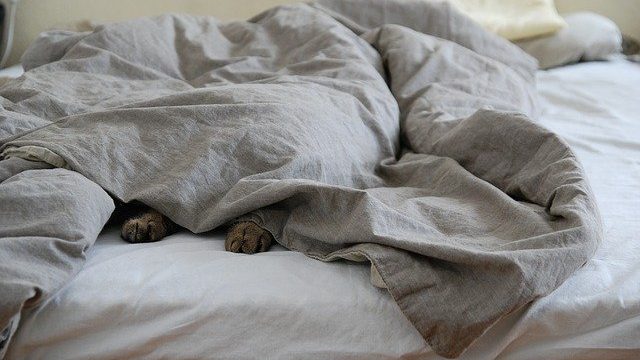
20July
2020
Each night you slip into your pajamas and perform your nightly routine–whether you realize it or not. Then you hop into bed and snuggle up with your blankets. But is there such a thing as sleeping with too many blankets? There might be. It’s time to rethink adding that third or fourth blanket on top. This has a lot to do with being too warm as you fall asleep. While you don’t have to go to bed shivering, your body still prepares itself for sleep by cooling down. But if you have too many blankets on, in an already warm room, your body will have a hard time cooling you down, which will interrupt your sleep. To help, here are some recommendations you can follow. Keep your bedroom door open Many people sleep with their bedroom door closed. However, if you sleep with the door open it can improve your sleep. People who sleep with the door open have a better and longer night’s sleep than those who sleep with the door closed because it allows for improved ventilation. Reconsider a hot shower before bed Another way to regulate your temperature is to rethink that pre-bed shower. If you take […]
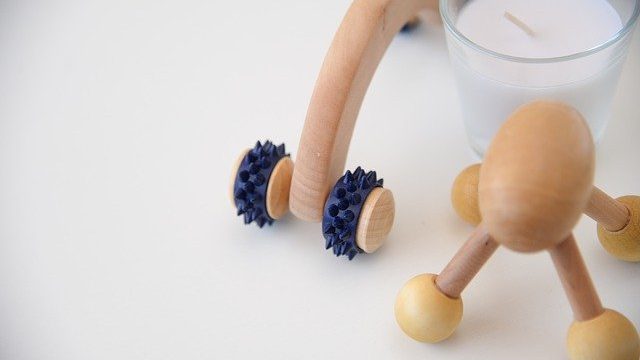
8July
2020
If you can’t remember the last time you got a good night’s sleep and are scouring over the internet for help, we’ve got some information we can share with you. Chiropractors can potentially provide some benefits for those who suffer from sleep apnea. Here is how chiropractors can help. Adjustments of the neck By visiting a chiropractor, patients with sleep apnea might benefit from adjustments of the neck. This will help add some support for the muscles and soft tissues in the area that impacts your sleep apnea symptoms. Additionally, this can help reduce tension and promote better breathing. Sometimes the collapsing of the air tubes could be happening because of a misalignment in the neck, shoulders and skull. Resolve other problems Ultimately, chiropractic care can also resolve other problems that might further complicate sleep apnea. This includes sinus congestion, and lung, thyroid and liver functions, which can support overall health to reduce inflammation. Chiropractic adjustments might also help improve digestive problems and more. While visiting a chiropractor has a host of benefits, we still recommend visiting us at AZ Sleep & TMJ Solutions in Scottsdale to learn more about how to address your sleep apnea symptoms. From there we […]

1July
2020
Let’s face it. We’ve all wondered how we can get a better night’s sleep regardless of underlying conditions. So what options are available? Some turn to medications and others might choose an alcoholic drink as a “nightcap.” But one easy, free and healthy way to approve your lack of sleep is by meditating. Here is how meditation can help improve your sleep patterns each night. How meditation helps There’s a lot of research out there that shows just how much meditation can help a person in so many ways. For sleep problems, it is often caused by stress and worry. With meditation, people can improve their relaxation response when it comes to approaching stress. It can also help to improve control of the autonomic nervous system, which, in turn, reduces how easily you are awakened each night. Meditation can also be used to: Increase melatonin, which is the sleep hormone. Reduce your heart rate. Decrease your blood pressure. Increase serotonin, which is a precursor of melatonin. Activate parts of the brain that control sleep. Everyone experiences similar changes in the early stages of sleep and meditation can help to promote sleep by initiating these changes–it is a win-win for everyone. […]

25June
2020
If you are someone who sleeps with the TV on, you’re not alone. A National Sleep Foundation poll found that 60% of Americans watch TV right before bed, and according to an LG Electronics survey, 61% of Americans fall asleep with the TV on. Some people swear by it, others find it to be a complete and utter disturbance! So what’s the verdict on sleeping with the TV on? Why do some need the TV? For some, having the TV on in the bedroom can be comparable to a child who can’t sleep without their favorite blanket. The TV becomes a necessity for falling asleep because our bodies grow attached to it. People who suffer from insomnia often watch TV to divert their constant thoughts to something that is easy to digest and therefore allows their bodies to drift off to a heavy slumber. Without the TV, their mind would wander and wander all night long. Others have simply formed a habit with the light or sound of the TV. Some children use the TV as a night light so they can rest easy knowing the monsters under the bed will stay put. Adults who have fallen asleep with the […]

18June
2020
With more than 3 million U.S. cases per year, temporomandibular joint (TMJ) dysfunction is a common yet painful disorder. It can be difficult to understand what is safe to eat versus what will cause your jaw more pain! TMJ is treatable, but lifestyle changes are definitely necessary and recommended in order to live a pain-free life! Let’s take a look at some examples! Gum or mints? For those suffering from TMJ, mints are definitely the preferred breath-freshener! TMJ is uncomfortable, painful, and annoying! Oftentimes when you are chewing, your jaw will click or lock. This is both scary and painful. When choosing between mints or gum, understand the difference in chewing! When chewing gum, your jaw is constantly in motion which results in soreness and irritation. Mints, however, do just the opposite! While still keeping your breath minty fresh, they offer your jaw a break! By simply letting the mint dissolve in your mouth, you are allowing your jaw to rest. If you’re one to chew on hard mints, choose a minty strip instead! This strip is offered in many different flavors and dissolves the instant it hits your tongue. Easy and safe for TMJ! Peanut brittle or chocolate? The […]

10June
2020
As we all adapt to stay-at-home measures that vary in severity across the country, our sleep can take a big hit. Prescriptions to help those with insomnia have hit an all-time high during these COVID-19 stay-at-home orders, as anxiety and stress are keeping us awake. What’s causing this spike? Recent research has shown that from February to March of 2020, insomnia prescriptions have increased by 21%. These prescriptions were on a steady decline, but once the World Health Organization announced a state of an emergency and declared that we were in fact in the midst of a global pandemic, numbers skyrocketed. When people experience high-stress situations, especially with something as unprecedented like COVID-19, our sleep schedules and patterns can be negatively impacted. When anxiety levels are high, our sleep becomes interrupted and fragmented. We lay awake in bed, thoughts racing all night long. We have bad dreams, we wake up constantly, we break out in a sweat. All of these symptoms are anxiety-triggered reactions to COVID-19 news. Our bodies crave the recommended 7-9 hours, so when we are deprived of that sleep, we seek help! This spike in prescription drugs for insomnia is directly related to the news of COVID-19, […]
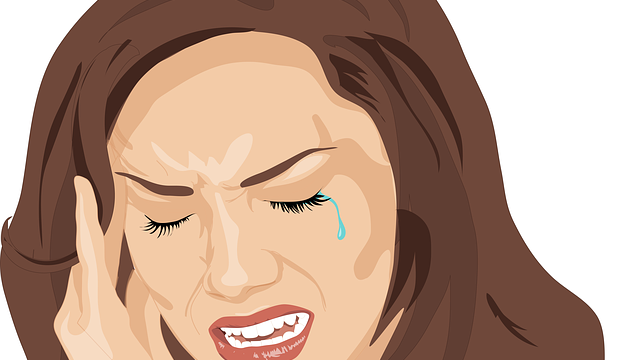
4June
2020
June 2020 is migraine awareness month! Over 38 million people in the United States suffer from migraines. Migraines are not your typical headache, they are much more debilitating and excruciating. In order to understand the importance of awareness, let’s dig a little deeper into the root of migraines! What exactly is a migraine? Migraines are commonly known as intense headaches with a sensitivity to light. Varying in pain levels, some people live with chronic migraines while others suffer from a migraine on occasion. Regardless of the frequency, migraines are no joke. The pain associated with a migraine is indescribable, as everyone’s tolerance is different. There are many theories as to why a migraine happens in the first place. With a direct cause unknown, most research leads to an over-activity or an abnormal activity of brain cells and waves. This leads to miscommunication among the nerves, resulting in a migraine. Do migraines have triggers? Some people know what causes their migraines, which is extremely helpful! They know to avoid certain triggers to prevent a migraine from setting in. For example, certain foods, drinks, hormone changes or emotional settings are known to trigger migraines. It varies for everyone, but extreme stress can […]

27May
2020
Sleep apnea is commonly diagnosed in adults as the probability of having this disorder increases with age. However, children are not invincible to this disorder! Some of the signs to look for are also present in adults, with a few key differences. Don’t worry, there are ways to treat sleep apnea, especially if detected early. What causes sleep apnea? When identifying sleep apnea, it is important to first understand what it is. To put it simply, it is caused by a restricted airflow while sleeping. The factors leading up to this diagnosis vary person to person. Factors could include obesity, age, alcohol consumption, and much more. Diagnosing sleep apnea in your child may prove to be difficult since children typically tend to be healthier than adults! What to look for in your child’s sleeping habits Similar to signs of sleep apnea in adults, look out for snoring with pauses or gaps while your child is sleeping. This could be a sign that your child has stopped breathing momentarily while sleeping. In addition to this, look for very heavy breathing while sleeping. This is a sign that your child is struggling to receive the proper airflow necessary for a restful sleep. […]

20May
2020
As the Spring season is underway, more and more people are getting outside and embracing the sunlight and warm weather! This exposure to sunlight and warm weather does wonders for more than your mood, it improves your sleep patterns! A simple walk around the neighborhood is the best prescription for a good night’s sleep. This could even improve your sleep apnea. Benefits of walking For the purpose of this article, walking will be the topic of discussion. If rollerblading, biking, hiking, or jogging are better options for you, great! Everyone has their preference, so find one that you enjoy and stick to it! Depending on where you live, walking outdoors may only be available to you during a few short months. Take advantage of it! Those few short months spent outdoors are enough to get you through the harsh, cooped-up winters. The benefits of walking outdoors are endless. To start, the natural sunlight helps to maintain a healthy circadian rhythm. The circadian rhythm is a cycle that regulates the sleep/awake schedule. If you rarely see the light of day, your body will become confused and tired. It won’t know when to naturally feel tired, and it may begin to crave […]

13May
2020
Temporomandibular joint disorder (TMD) affects over 10 million Americans, causing pain and dysfunction in the jaw–specifically the temporomandibular joint (TMJ). This disorder is associated with jaw clicking, lockjaw, pain while eating or swallowing, and inflammation throughout the jaw bone causing headaches. It is quite the painful disorder, with many Americans looking for a solution that fits their situation best. One option that has popped up recently is estrogen for TMD pain. Understanding estrogen In recent studies, it has become apparent that women are at a higher risk for TMD, specifically during their reproductive years. This is a relatively new discovery, but it is a discovery worth exploring further. Without getting too technical, understanding the role of estrogen in relation to TMD can be quite complex to understand. As many of us know, estrogen is the female hormone whereas testosterone is the male hormone. Though men and women possess both hormones, men are built with more testosterone, while women are built with more estrogen. It’s just part of what makes humans unique! What role does estrogen play in TMD? Unfortunately, an abundance of estrogen can play a big role in the inflammation aspect of TMD. Estrogen is made up of two […]
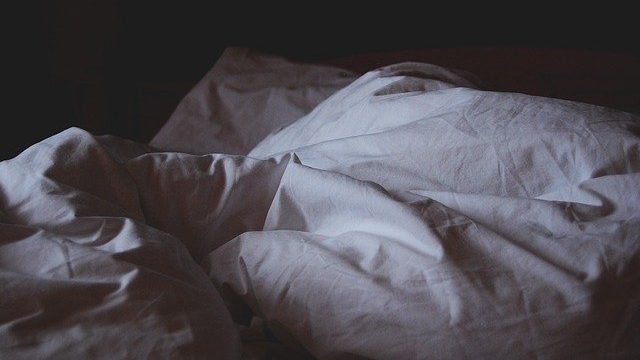
6May
2020
Think about it, I’m sure we all know one or two people, maybe a sibling or a friend, who sleeps the day away, right? Or, if we’re being honest, maybe it’s you! This is someone who sleeps until noon and stays up until 2 a.m.. Sounds like your typical college student cramming for tests, which is common! But is this harmful to our bodies? Is there such a thing as too much sleep? The healthy amount of sleep To start, it’s important to understand how many hours of sleep is a healthy amount. This number varies person to person, with many factors to consider. The average adult should be sleeping an average of 7 to 9 hours a night. Talk to your doctor to find out how many hours you should be getting personally. Among many other benefits, these 7 to 9 hours help your appetite, your immune system, and your memory. Without the standard 7 to 9 hours, you may encounter some health issues. Oppositely, too much sleep leads to the same outcome. The outcome of too much sleep It’s important to note that children and teens who sleep in on the weekends are not going to find themselves […]
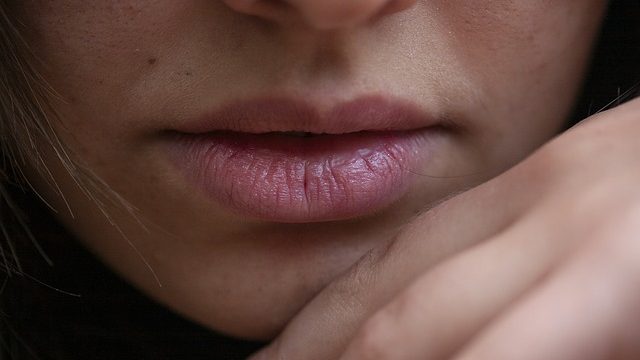
29April
2020
If you have been recently diagnosed with Temporomandibular Joint Disorder, your doctor may have mentioned oral appliance therapy. With many options available for treatment, it can be overwhelming to make the right decision. It’s important to weigh your options, as everybody is different! What are oral appliances? Oral appliance therapy is used as a treatment for many oral disorders, TMD being one of them. Temporomandibular Joint Disorder can be quite painful and annoying, so establishing a proper treatment plan is crucial for a pain-free life. Oral appliances are typically worn overnight, allowing the individual to receive treatment without having to lift a finger. These appliances are custom fit to your mouth and TMD severity. What works for one person may not work for the other, so it varies case to case. Working alongside your doctor, you will be able to find an appliance that relieves the pain of TMD, and is comfortable to wear. What do the appliances do? When used to treat TMD, these oral appliances give your jaw a break. Depending on your particular TMD severity, you will wear an appliance that creates a gap between your top and bottom jaw. This will allow your jaw to rest […]
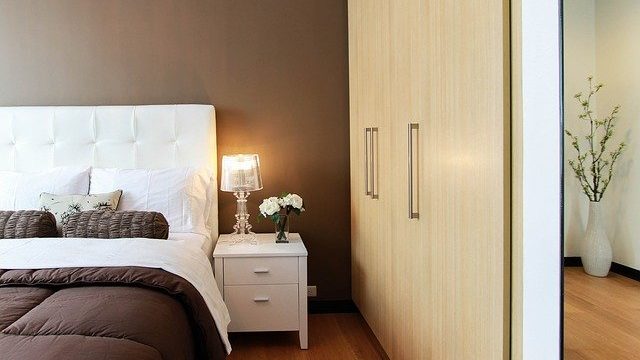
22April
2020
Sleep is one of the most fundamental aspects of a healthy lifestyle. Without it, your days can drag, your work can suffer, and your relationships will be grasping for attention. I understand, getting a good night’s sleep is easier said than done, we lead busy lives! However, with these simple tips and tricks, your days of counting sheep will be over. Stick to a strict schedule/ritual It is important to try to establish a schedule for your body to follow on a regular basis. If you’re constantly on a roller coaster of sleep patterns, your body will never recognize when it’s time to go to bed for the evening. Take note of what time you seem to go to bed the most, and then make that time your designated “bedtime.” This may seem childish, but your body craves routine. Create a bedtime ritual to keep things simple. For example, if you want to be asleep by 10 p.m., start your bedtime ritual by 9 p.m. Brush your teeth, wash your face, get your pajamas on, get into bed, and let your body relax. If you make this an everyday occurrence, your body will know what to do and when to […]

14April
2020
You may notice a clicking sound when you’re chewing or talking. It may not be loud enough for others to hear, but you can definitely hear it. Annoying, right? This clicking may be associated with something called Temporomandibular Joint Disorder, otherwise known as TMD. Don’t fret, there are ways to lessen the sensation and sounds of the clicking! What is TMD? Temporomandibular Joint Disorder occurs when the joint connecting your jaw to your skull is not functioning properly. This joint acts as a sliding hinge, so when it’s not performing at its best, it can be both painful and annoying to the individual. This disorder causes pain, inflammation, facial or ear pain, clicking or locking of the jaw, and difficulty chewing. While not all symptoms may be present for TMD to be diagnosed, this disorder can get worse if not treated properly. Treatments vary depending on the severity of the case, so it’s important to discuss your options with your doctor. Treatment plans to fit your case When talking to your doctor, be sure to inform them of all the symptoms you’re experiencing. After a full exam, your doctor will be able to establish a treatment plan to ease your […]
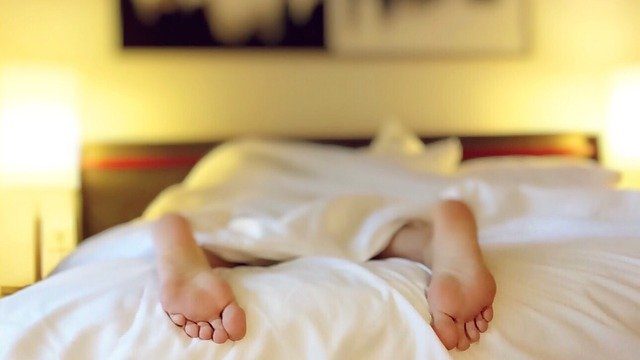
6April
2020
If you have been diagnosed with sleep apnea, you may be struggling to find what works best for you in terms of treatment plans. Rest assured, your doctor can work with you to find a solution. One solution may be oral appliance therapy. A simple addition to your nighttime routine could be the difference between no sleep at all and that blissful eight hours your body craves! What are oral appliances? Oral appliances are used to treat many common disorders, sleep apnea being one of them. These appliances, oftentimes used alongside or in place of a Continuous Positive Air Pressure (CPAP) machine, allow for better breathing and air flow while you are sound asleep. These appliances are custom made to fit your mouth and jaw comfortably. Small and compact in size, these appliances are easy to use, easy to travel with, and easy to clean. What do the oral appliances do? Oral appliances accomplish two main tasks to allow for a safer sleep. They open the airway to allow a better pathway for air, and apply pressure to the tongue in order to keep it from falling backwards while sleeping which creates an obstructed airway. These appliances keep your airway […]

25March
2020
Have you noticed an increase in headaches? Is your standard Ibuprofen or Tylenol just not cutting it anymore? There may be an underlying issue that your dentist can help you resolve. Your headache pain may be stemming from something called temporomandibular joint disorder. Temporomandibular Joint Disorder described Commonly referred to as TMD, this disorder can be quite painful. It may start off as a small clicking, which can sometimes go unnoticed. Eventually, the pain will become so pronounced, and you might even experience a locking sensation in your jaw. Take note of what causes the most pain, as your doctor will need all the details to make an informed diagnosis. Sometimes a simple toothache or sinus infection can disguise itself as TMD, so it’s important to take the necessary steps to determine the actual cause of your pain. Headaches are often debilitating, so getting this disorder under control as quickly as possible is crucial. How do my teeth affect my head? It may seem silly to think that your chewing can be related to your recurring headaches, but it’s quite common! The temporomandibular joint is a small yet very important part of your facial structure. This joint is responsible for […]

18March
2020
Think of your ideal night of sleep. Maybe some warm tea in bed, fuzzy blankets to keep you warm and comfortable, and a snoring spouse for some white noise. Wait a second, nobody enjoys a snoring family member! You’re tired of nudging them to break the chorus, kicking them “by accident,” and suffocating your ears just to catch some z’s. Before relocating to the couch, what can you do to help yourself? Try ear plugs Starting at the basic level, invest in a pair of ear plugs. Ear plugs are usually very soft and moldable to fit your ear and facial structure. Incorporating them into your sleep routine can deflect enough of the snoring to allow you to get a restful sleep. It may not be the perfect sleep, but they’ll get the job done. White noise can help Another option would be a white noise machine or a fan. A fan can provide you with the noise necessary to block out the snoring, as well as a pleasant breeze within the bedroom. If you get cold easily, a white noise machine might be the better route. It doesn’t have to be anything fancy, just a simple white noise machine […]

11March
2020
Think of your absolute favorite food. Perhaps it’s a juicy hamburger, or a crunchy salad, or maybe you have a sweet tooth for Tootsie Rolls! Whatever it may be, you couldn’t imagine your life without it. And why should you have to, right? Unfortunately, a lot of people struggle with jaw pain that prevents them from eating their favorite foods. What should you look for? As you’re eating, you may notice some discomfort. Most of the time, people overlook it as a sore tooth or a bite gone wrong. We tend to ignore these initial warning signs because we don’t always see the jaw as being an important part of our body. This is a common misconception! Take note of your discomfort the next time you bite into that burger. Are you experiencing headaches, pain while chewing, clicking or locking of the jaw? You may have something called Temporomandibular Joint Disorder (TMD). Try to jot down any foods in particular that you’re experiencing pain with while eating. This will help your doctor determine the severity of your case. Temporomandibular joint disorder TMD can prevent you from eating all of your favorite hard or chewy foods. The pain and discomfort it […]
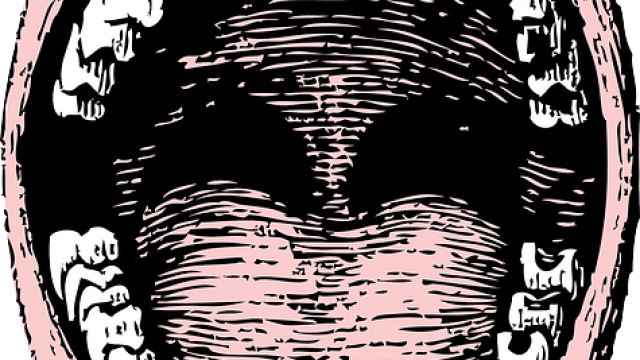
4March
2020
Who knew that we had fat in our tongues? It is definitely not a well-known fact among the general public, but it has become a topic of conversation in recent studies. Understanding the symptoms and causes of a larger tongue can help to determine whether or not it is affecting your sleep schedule negatively. Where does this stem from? Obesity has been linked to sleep apnea, and typically people who have been diagnosed with obesity tend to have larger tongues. Thus, creating a restricted airflow while sleeping. With a larger tongue, the back of the throat is not as open as it should be. This causes people to stop breathing in their sleep, a condition known as sleep apnea. Sleep apnea is treatable, but if the problem lies in the size of your tongue, there may be different ways to fix your sleep apnea altogether. How can you slim down the fat in your tongue? Weight loss in general is difficult, so it’s hard to imagine cutting down the weight in your tongue. Seems humanly impossible, in some cases! There are no weights to lift to train your tongue and no aerobic exercises to keep your tongue slim and toned, […]
